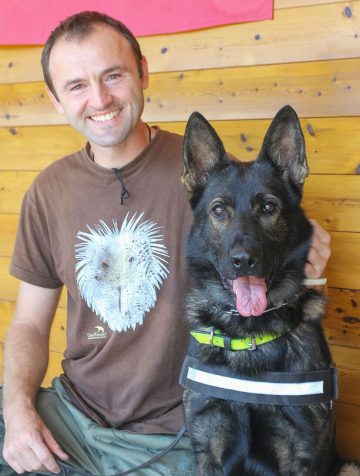A new documentary presents the unique dining habits of Rhodopean vultures.
Disgusting yet intriguing. Endangered yet immensely beneficial. Clumsy on land yet majestic in the sky. Vultures might be paradoxical creatures, but they are nevertheless loved by wildlife enthusiasts and photographers the world over.
Take a few moments to get better acquainted with these captivating birds by watching the short film “Time for Lunch”. Released last week, this five-minute documentary was shot as part of the LIFE project “Conservation of black and griffon vultures in the Rhodope Mountains”. Taking you flying with the so-called “Lords of the Rhodopean Skies”, it offers a fascinating insight into the everyday lives and feeding habits of vultures, and offers compelling reasons why we need to save them from disappearing forever.
A major focus of “Time for Lunch” is the unique diet and strict dining etiquette of “nature’s cleaners”.
“The video opens to dramatic scenes that some people might initially find a little disturbing,” says scriptwriter Alexander Marinov-Sancho. “I’ve watched many documentaries featuring beautiful, sanitised footage of vultures, but this is simply glossing over their true role in nature. These are scavengers that do the dirty work of cleaning up after death. We show this in full gory detail.”
Doing the dirty work is what makes vultures special, and they do it better than most. Like most scavengers, they prefer fresher carrion. But with super-strong stomach acid, they can handle older, tougher, nastier carcasses that even other scavengers won’t touch. “Not an appealing meal for humans”, as the documentary says, “but it’s a matter of taste”.

Тhe documentary also looks at poisons – the most challenging threat to vultures – and how the LIFE Vultures team is trying to handle the delicate situation in and around the Rhodope Mountains rewilding area. Poisoning is the main threat to vultures everywhere, but unfortunately it is still relatively common in areas of the Rhodopes where people use banned poisonous substances to target predators (mainly wolves).
With instances of poisoning in the Rhodope Mountains on the rise, it is vital that we stop this insidious, hugely harmful practice that can wipe out whole populations in just a few days. This was the case in Kresna, in southeast Bulgaria, where poisoning saw the bulk of the local breeding griffon vulture population destroyed.
It is hard to believe that just a few granules of a compound designed to kill worms and other invertebrates can kill a bird whose gastric juices are acidic enough to neutralize rabies, cholera and anthrax. But vultures are simply unable to handle artificial poisons.
As the documentary shows, this is where Nikolay (the handler) and Bars (the highly trained sniffer dog) play their invaluable part in vulture conservation in the Rhodope Mountains. Bars has been specially trained to track down poison baits – just one action the Rewilding Rhodopes team are taking against the illegal use of poisons under the framework of the LIFE Vultures project.
“This documentary not only shows the real intricacies of vulture diet, but also just how vulnerable these birds are,” says Nelly Naydenova, a communications officer attached to the Rewilding Rhodopes team. “We hope that it will not only fascinate people, but inspire them to contribute to vulture conservation in some way.”
“Time for Lunch” was produced by Bearfrost, a Bulgarian audio-visual production company. The Rewilding Rhodopes team would like to thank all those people involved in the production, both on the screen and behind the scenes. Please enjoy… and don’t lose your appetite!
